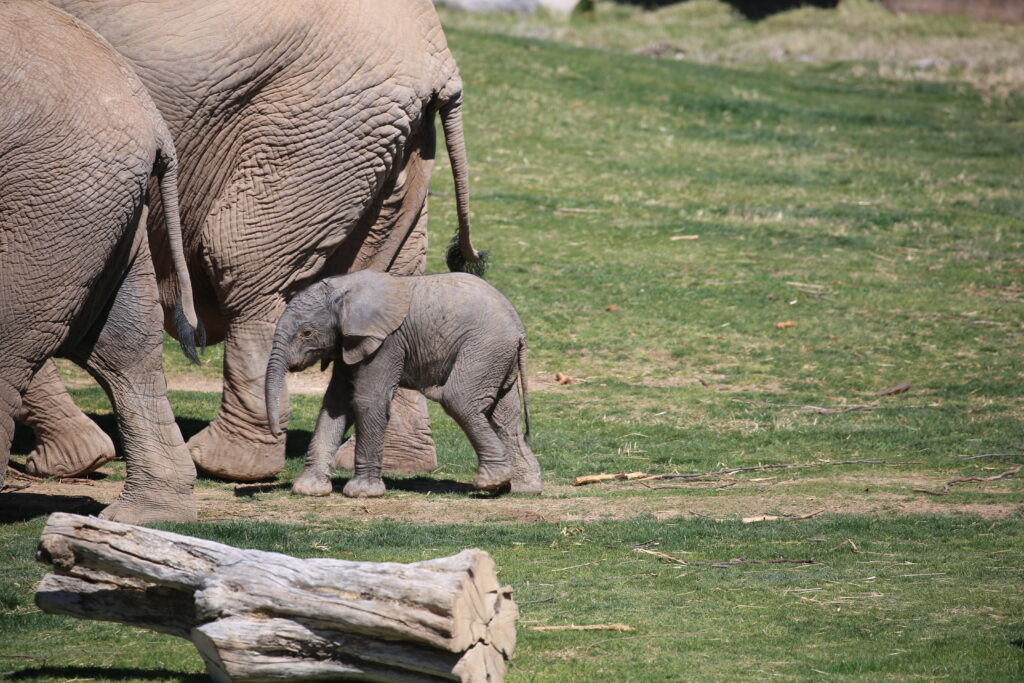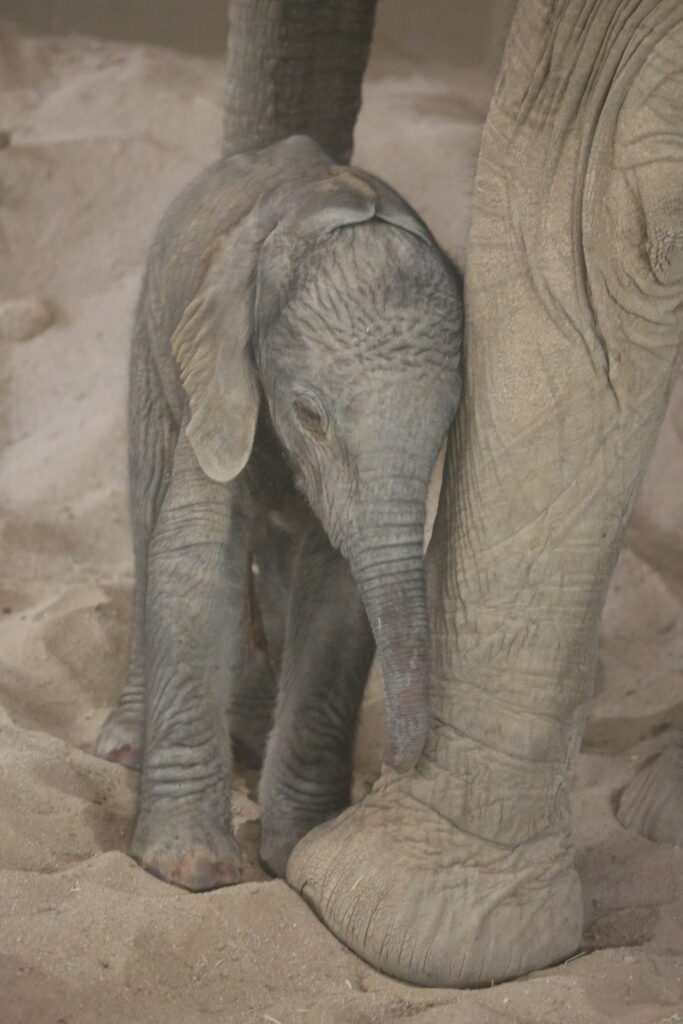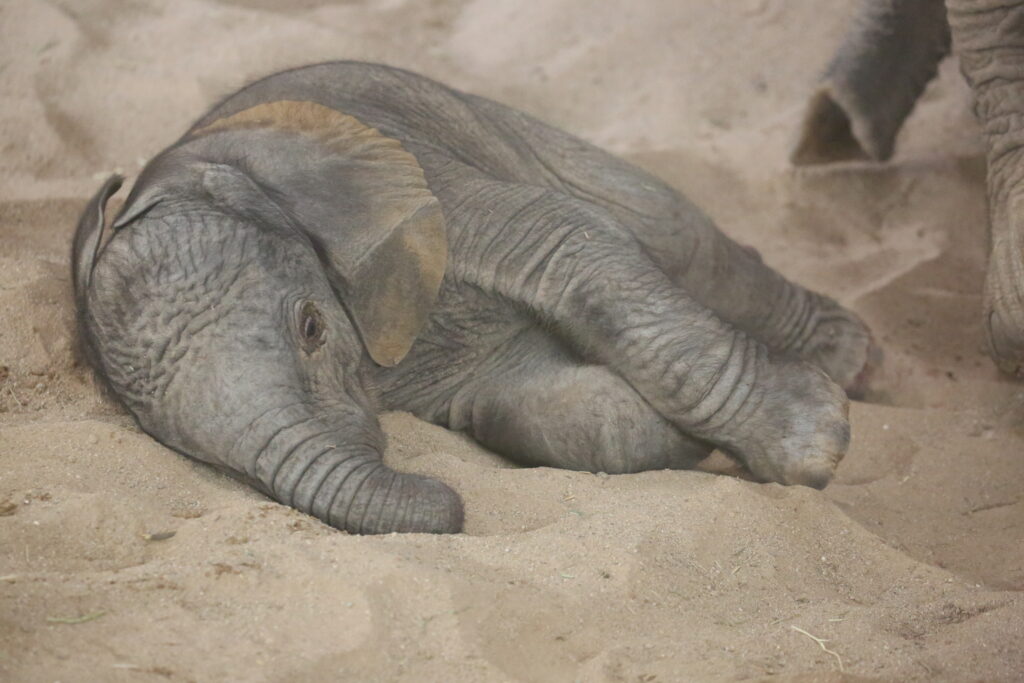Elephant Calf Born at Reid Park Zoo

Reid Park Zoo in Tucson, Arizona is excited to announce that Semba, the Zoo’s African elephant matriarch, gave birth to a 265 pound calf at 3:31 a.m. on Friday, March 8, 2024. The calf, whose sex has not yet been determined, is standing, sticking close to mom, and nursing enthusiastically.
The new calf expands the Zoo’s elephant herd to five, joining Semba, big sisters Nandi and Penzi, and allomother Lungile. The calf is the third African elephant calf born at Reid Park Zoo. Nandi has shown significant interest in spending time with her new youngest sibling.
 “Nandi really took to her role as a big sister when Penzi was born, and she’s eager to bond with the new calf as well. We’re excited to watch her show Penzi how to be a big sister,” said Adam Ramsey, Reid Park Zoo’s Director of Animal Care.
“Nandi really took to her role as a big sister when Penzi was born, and she’s eager to bond with the new calf as well. We’re excited to watch her show Penzi how to be a big sister,” said Adam Ramsey, Reid Park Zoo’s Director of Animal Care.
Semba and the calf are both doing well, and will spend some time behind-the-scenes in the coming days to bond. The elephant care team will stay close at hand to monitor Semba and her calf, ensuring they are receiving the best care.
Last fall, routine monitoring of Semba alerted staff to potential medical concerns. This led the Zoo’s elephant and veterinary teams to provide extra care, including additional lab work and ultrasounds. The team began 24-hour monitoring in late November, which is a few months earlier in the pregnancy than is typical.
“I want to thank the animal care and veterinary teams for the incredible care they provided for Semba and her calf,” Ramsey said. “To meet the elephants’ needs, more care, monitoring, and testing took place during this pregnancy than for any of Semba’s older calves. The team worked very diligently, and are excited to announce that the calf is hitting all their early milestones. Mom and baby both look great following this morning’s birth.”
This new calf will join the other members of the herd in being an ambassador for their species in the wild. Every guest who visits the Zoo plays a part in protecting elephants in the wild, assisting Reid Park Zoo’s support of the Tarangire Conservation Research Program which has conserved over a million acres of elephant habitat in Africa. The Zoo also participates in the African elephant Species Survival Plan and contributes to global research in elephant care, as well as the study and mitigation of the fatal elephant virus known as EEHV.
“We cannot wait to introduce this new calf to our community, and for our herd to continue to inspire a love for elephants and their needs in the wild,” said Nancy Kluge, Reid Park Zoo’s President & CEO. “Reid Park Zoo is so proud to do our part for this species.”

